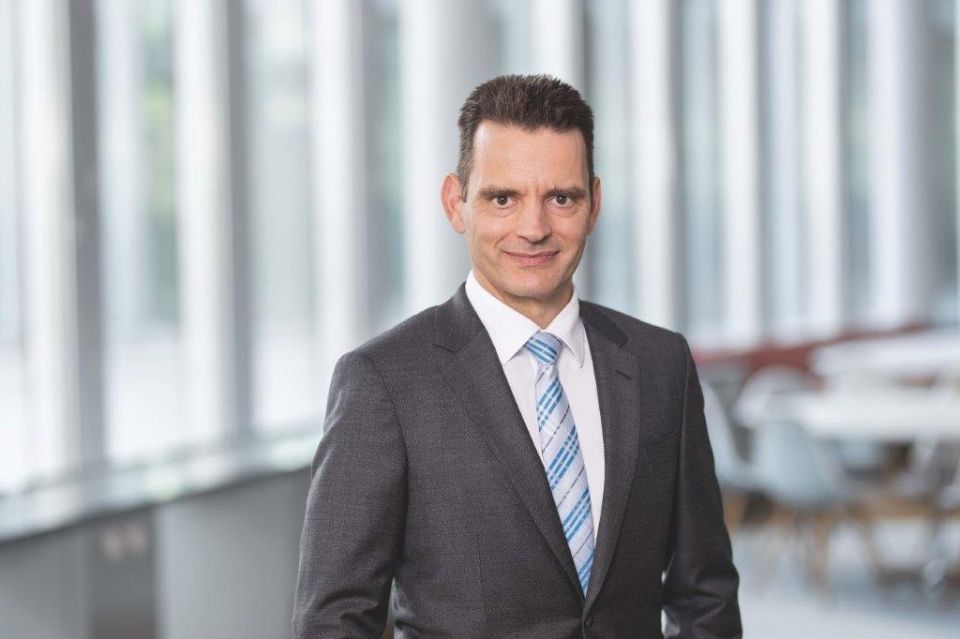E.ON increases planned investments in energy transition across Europe

E.ON announces the expanding of its mid-term investment plan by about 30 percent relative to its previous five-year plan. From 2024 through 2028, the Group plans to invest 42 billion Euro in Europe’s energy transition and thus in a secure, competitive, and sustainable energy system. About 70 percent of the investments will be made in Germany.
CEO Leonhard Birnbaum affirmed at today’s annual press conference: “We again defied challenging circumstances in the financial year 2023. And we again delivered very good results that exceeded our expectations. For this, we owe our employees a big thank you. This result is proof of our operating performance and the success of our investment and growth strategy. It also shows that we increasingly benefit from our consistent strategic focus on energy networks and sustainable energy infrastructure and customer solutions. This makes E.ON one of the leading companies for the energy transition in Europe.”
Adjusted Group EBITDA of €9.4 billion in the financial year 2023 was €1.3 billion above the prior-year level and also above the forecast range of €8.6 to €8.8 billion, which had been adjusted in July. One-off effects contributed significantly to this earnings performance, as did operating improvements and accelerated investments. Adjusted Group net income rose by about €340 million to €3.1 billion and was therefore likewise above the forecast of €2.7 to €2.9 billion.
Energy Networks delivered the largest share of Group earnings. The segment’s adjusted EBITDA of €6.6 billion represents a €1.2 billion year-over-year increase. Higher investments in E.ON’s growing network infrastructure were a key driver of this positive development. This ensures that the company can continually connect renewables, heat pumps, and charging infrastructure and give customers across Europe access to sustainable energy. In 2023, E.ON added more than half a million new connections to its distribution networks. Alongside higher investments, the recovery of the energy market environment had a positive impact on the network business. This led to a significant reduction in costs for redispatch in Germany. This temporary relief will be passed through to customers in network fees in the years ahead.
Customer Solutions’ adjusted EBITDA rose by €1.1 billion year-over-year to €2.8 billion. The market environment had a positive impact here as well. For example, the further stabilization of price levels on wholesale markets contributed to this segment’s good earnings performance relative to the prior year, which had been strongly affected by very high prices on energy markets. Furthermore, an additional procurement optimization and one-off effects like non-recurring effects relating to the regulation in the United Kingdom led to a significant earnings increase. The negative effects on earnings included in the forecast for the end of the year did not materialize, because energy markets did not experience another winter crisis. By contrast, the passthrough of lower wholesale prices to customers was, as announced, among the negative effects in the fourth quarter.
Outlook: Adjusted Group EBITDA expected to grow to more than €11 billion by 2028
For the current year, E.ON continues to expect higher wholesale prices and a higher inflation and interest-rate level than before the start of the crisis. In addition, one-off effects from the previous year will not be repeated. Against this backdrop, the company anticipates that its full-year 2024 earnings will normalize, resulting in an adjusted Group EBITDA of €8.8 to €9.0 billion. Adjusted Group EBITDA is expected to increase to more than €11 billion by 2028.
In the Energy Network business, E.ON intends to expand its earnings to €6.7 to €6.9 billion in the current financial year. In particular, investments in the network infrastructure are expected to propel the additional growth. E.ON aims to increase its network business’s earnings contribution to more than €8 billion by 2028.
Effective from the beginning of 2024, E.ON reports its Customer Solutions business in two separate segments: Energy Retail und Energy Infrastructure Solutions (EIS). Energy Retail is expected to deliver an adjusted EBITDA of €1.6 and €1.8 billion in 2024. A normalization of earnings is anticipated in energy sales, mainly because of non-recurring effects that had a significant positive impact on earnings in 2023. Based on its five-year plan, E.ON projects that the Energy Retail segment’s earnings will grow continually through 2028 to about €2 billion.
E.ON’s Energy Infrastructure Solutions (EIS) segment aims to increase its earnings to between €550 million and €650 million. Positive drivers are increased investments into new customer projects in recent years. Sustainable, decentralized energy infrastructure solutions are of immense importance to the transformation of energy, heating, and transportation. E.ON aims to play a key role in shaping the decarbonization of industry and commerce across Europe. By 2028, the EIS segment intends to install more than one gigawatt of new renewables capacity at customer sites and in its district heating and cooling networks, with a focus on solar. Its growth potential is expected to result in this segment’s earnings increasing to about €1 billion over the next five years.
E.ON anticipates an adjusted Group net income of €2.8 to 3.0 billion in the financial year 2024. This corresponds to €1.07 to €1.15 earnings per share. The Management Board and the Supervisory Board will propose to the Annual Shareholders Meeting an increased dividend of €0.53 per share for 2023. This is in line with E.ON’s target of increasing the dividend by up to 5 percent annually through 2028.














